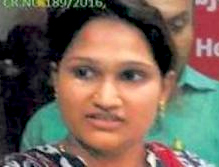Bengaluru, Apr 6: The Central Crime Branch (CCB) has arrested a 25-year-old woman for selling fake degree certificates and marks cards of well known universities in the country and also a foreign university.

Based on the information, the CCB carried out a raid on Vijetha College Admission cum Information centre at Sai Plaza complex in Jayanagar, 4th T Block, and arrested Banu.
During the interrogation, she revealed that the centre was being run by Ravikumar. They used to offer fake marks cards and degree certificates of different courses from well known universities including Madhurai Kamaraj University, (Tamil Nadu); Dravidian University, Kuppam (Andhra Pradesh); Rashtriya Vishwa Vidya Peetha, Mumbai; CV Raman University, Chattisgarh; Board of Open Distance Learning, West Bengal; Global Open University, Nagaland; RKDF University, Kerala; and Northwest Accreditation Commission (USA). They used to offer fake certificates for 38 courses including PhD and MPhil, BA, BCom, BSc, MA, MCom, MSc, MBA, MCA, LLM and many other courses said the CCB officials. “The centre was being operated for the past one year in the city while the main centre is situated in Secunderabad. They used to offer the fake certificates for Rs 30,000 to 50,000. They even used to make the students write the exam by giving them fake question papers just to make sure that the students do not doubt the centre.
Also, they used to even hand over the marks card and degree certificate within 30 days from the date of completion of exams. If anyone asked for modification of the dates on the marks card issued and make it look like that it was issued around seven to eight years ago, then they would charge extra amount,“ said a senior police officer.
“One of the student, who received marks card and certificates by the centre, crosschecked it with the university. But he did not find his name. When he approached the centre, he was told to wait for a while saying that the university is yet to update the same. The student waited but only to realise that it was a fake centre. He approached the police and registered a complaint based on which the centre was raided. The main accused Ravikumar is absconding and will be arrested at the earliest,” added the officer.
A case has been registered in Tilak Nagar police station and investigation is being carried out.





Comments
how come perfect manual follower doing this type of third rated work... looks like it isin their books ..haha... i heard she does 5 times pray to creater.
Hang those who took the fake certificate and got benefited.
most of the people using this certificate in abroad :P
Hang her in the public with Baba Ramdev all equal cheaters
Add new comment